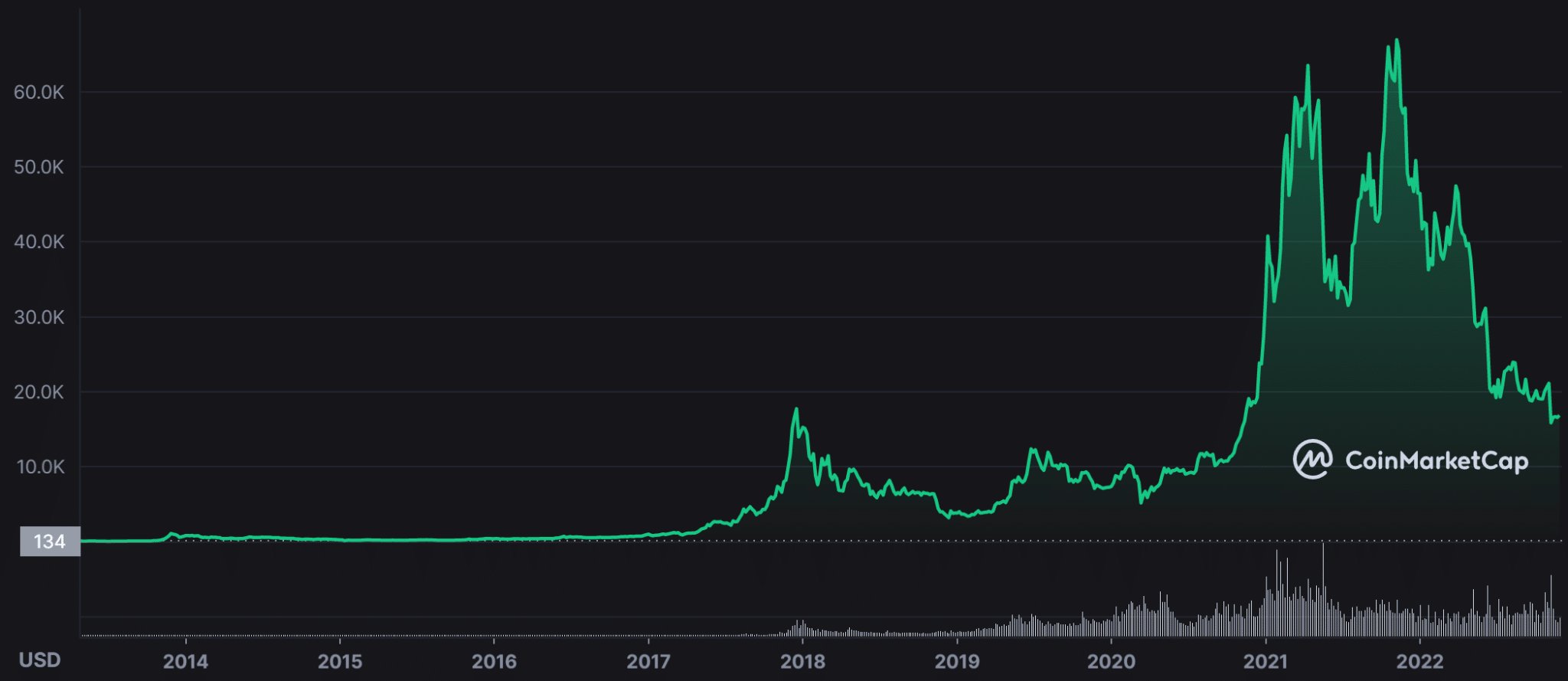Is cryptocurrency or stocks better for my investment portfolio?
This is a question that a good number of investors would have asked themselves at one point in their investment journey. This rings especially true if they have the investment horizon to smooth out the volatility of both assets.
Investors, especially those who take on loans–whether from banks or licensed moneylenders–to invest, would surely want to put their money into assets that would generate a good return over time.
If you are wondering whether you should dip your toes into cryptocurrency or stick with stocks, read on as we review the pros and cons of both asset classes. Discover if they’re appropriate for your risk tolerance and investment goals.
Why Should You Invest in Cryptocurrency?
Cryptocurrency is indeed a highly volatile asset, with large price dips being the norm when the economy is experiencing a downturn. Even when the global economy is humming along just fine, it’s not unusual for cryptocurrency prices to suddenly drop. On the flip side, cryptocurrency prices can rise just as quickly.
For example, Dogecoin (DOGE) saw a 28.8% gain from 24-30 November 2022 even though it was the middle of crypto winter. High price volatility and trading volumes are two important reasons why individuals are attracted to investing in cryptocurrency.
Advantages of Investing in Cryptocurrency
No matter which cryptocurrency you’re looking at, their prices would’ve taken large hits throughout the years. However, the long-term potential of digital currencies cannot be denied. Take a look at Bitcoin. The first-ever cryptocurrency was launched in 2009 at practically no cost. Today, a single Bitcoin is worth over US$16,000, even in a deeply bearish environment.
(Source: CoinMarketCap)
What’s more, over 21,000 tokens are being circulated across various centralised and decentralised exchanges. The options that investors have is only limited to the amount of time and effort they’re willing to put in for their research. This research is especially important if you’re looking to invest via a loan from a licensed moneylender in Singapore.
And with global organisations like Wikipedia and PayPal now accepting cryptocurrency, this asset class is far from dead.
Disadvantages of Investing in Cryptocurrency
As a smart investor, you shouldn’t be blinded by the potential of cryptocurrency and ignore the risks that come with this asset class. For one, the prices of digital currencies are very volatile and trading never stops. Even the foreign exchange market takes a break on the weekend!
Additionally, despite multinational organisations warming up to cryptocurrency, this asset might not succeed. It’s still very young, with Bitcoin existing for just over a decade, let alone the other cryptocurrencies out there. This asset class might be branded as the currency of the future, but it still has a lot of ground to cover to gain widespread acceptance.
Why Should You Invest in Stocks?
Cryptocurrencies and equities are very different animals, even though they are both considered higher-risk assets. When you purchase a stock, you essentially own a share of an actual business that offers goods and services to retail and institutional consumers. Several famous public companies include Apple, Amazon, and Nike.
Advantages of Investing in Stocks
Every investment comes with a set of risks, whether it’s cryptocurrency or stocks. However, you are better able to forecast how a stock will perform in the future with the vast amount of information that’s available on the Internet. This includes the company’s balance sheet through the years and how its industry is performing as a whole.
On the flip side, cryptocurrency is highly speculative, being strongly influenced by supply, demand, and investor psychology. Investing in stocks involves a relatively high level of risk, but they have proven to withstand the test of time. This rings especially true for companies that have been publicly traded for decades.
Disadvantages of Investing in Stocks
As with every other investment, there’s no guarantee that you’ll come out on top. Even if you can hold a stock for years to smooth out the risk you take on, there’s no guarantee that you’ll turn a profit. Additionally, no amount of research can prepare you for black swan events like a global pandemic or economic downturn.
COVID-19 is one event that caused more than a few folks to turn to licensed moneylenders for emergency financial aid. Businesses around the world were hit hard too, with Singapore Airlines’ stock price dropping as low as S$3.20 per share in 2020. This is in stark contrast to the company’s all-time high of S$20.20 per share in 2007.
Additionally, investing in stocks requires you to have patience. After all, you’re putting your money in a company that you believe will steadily expand and invest its resources to become more profitable through the years. It takes time to develop this mental resilience and not fall prey to panic or knee-jerk reactions.
Make An Informed Decision When You’re Investing
Stocks may seem like the safer option when compared to cryptocurrency, but whichever investment you choose to go with, there’s definitely a level of risk that you’re taking on. Take your time to perform your research before putting your money down. Every investment that you make must suit your risk appetite. Lastly, do be prepared for possible losses and be aware of how your investments affect your overall portfolio.
If you need additional funds in your war chest, check out Cash Direct. This reputable licensed moneylender in Jurong East offers fast and convenient loans to get your investment plan on track. Contact us now and speak with our experienced loan officers for more information!
About the Author

Constance Lee is a freelance writer who is experienced in creating well-researched content for many industries. She has worked with many clients across the world and has produced over 500 articles.






